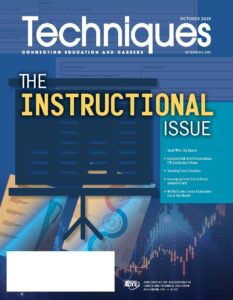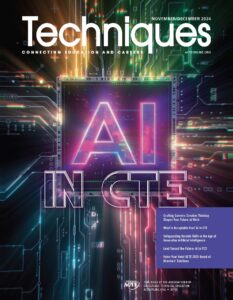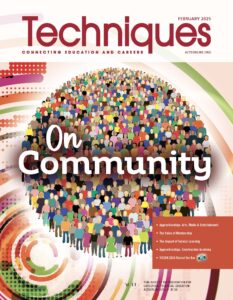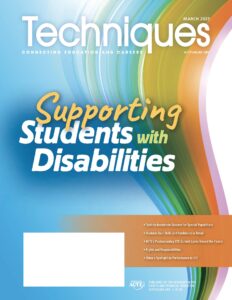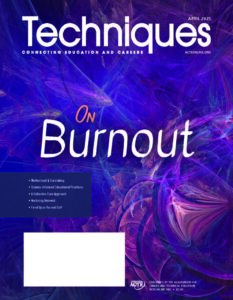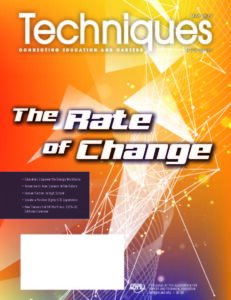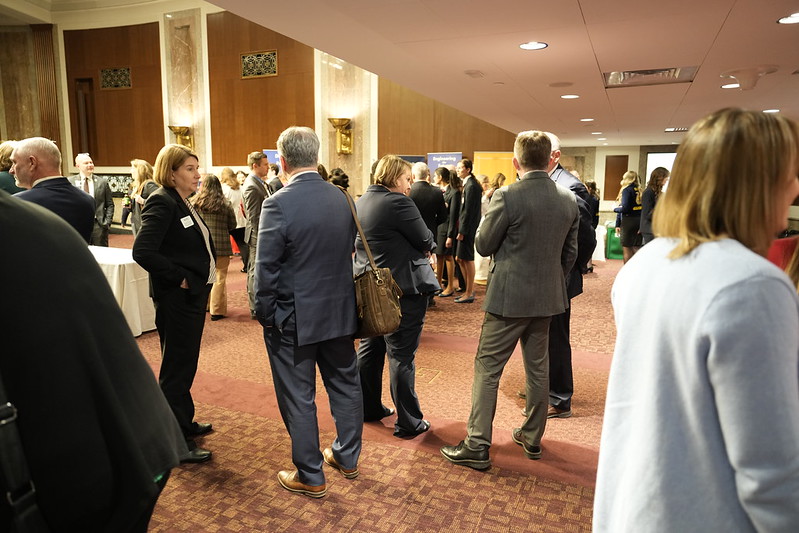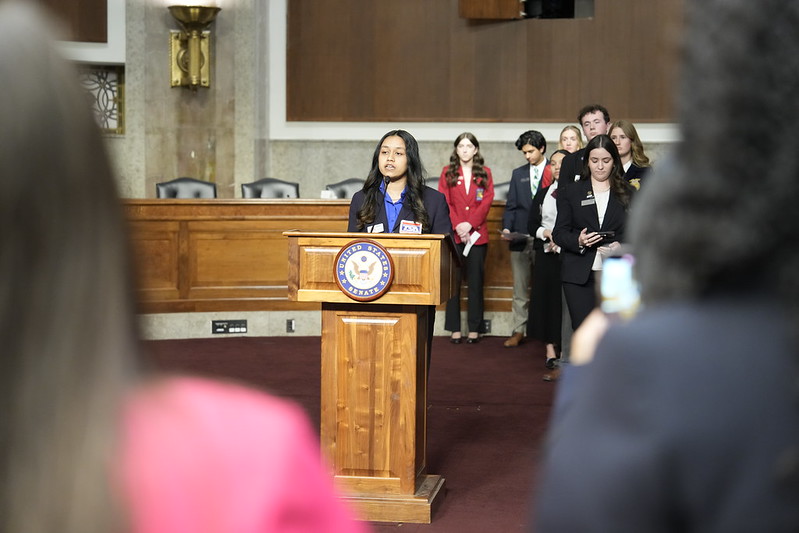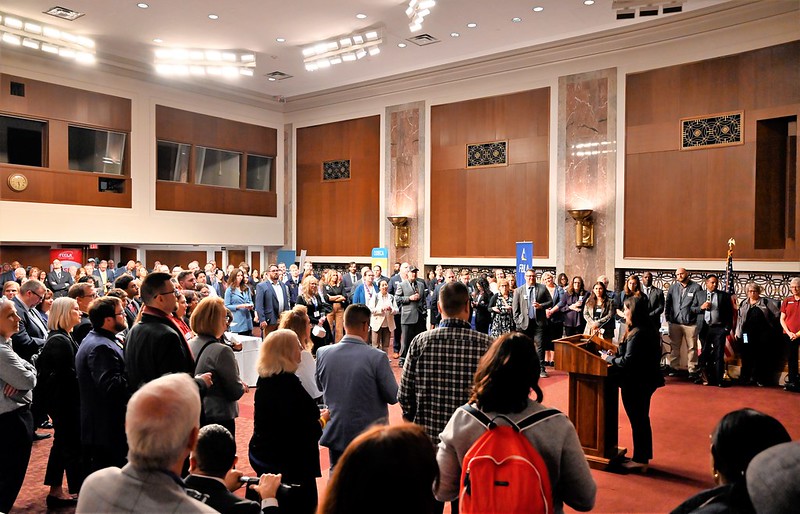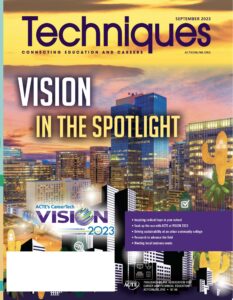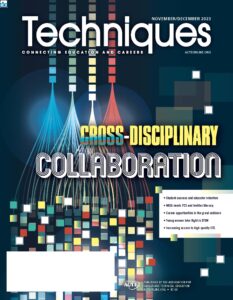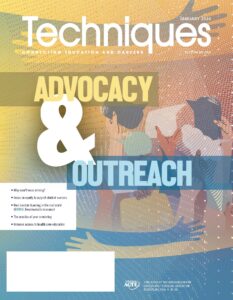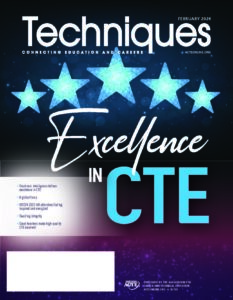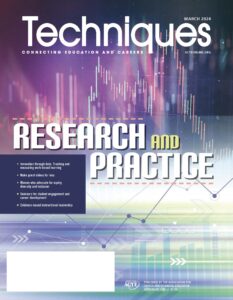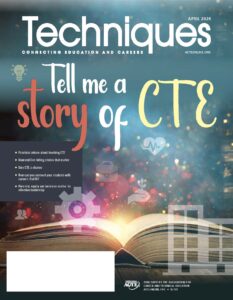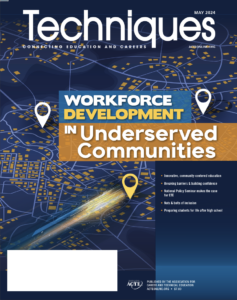For Jennifer Breman, ACTE’s National Leadership Fellowship Program was “the most beneficial leadership training” she’s participated in — an experience that echoes throughout a growing community of CTE educators who’ve discovered the power of connection, collaboration and strategic thinking to amplify their impact. This year’s cohort of fellows represents the breadth and depth of CTE, and what unites them isn’t their specific pathway or geographic location, but their shared commitment to supporting student success.
The fellowship’s influence extends far beyond individual growth. These educators are breaking down silos between CTE areas, serving on school boards with informed perspectives, and approaching technology integration with both innovation and intentionality. They’re learning to leverage AI appropriately while maintaining a focus on essential professional skills, bringing 3D printing across multiple content areas, and using virtual welding technology to recruit students and manage costs.
Perhaps most significantly, they’re developing what Ricardo Pimentel described as a more “inclusive and curious” approach to leadership. That is one that asks, How could this idea be adapted for other pathways? He wrote, “I’ve had the chance to connect with passionate professionals from all areas of CTE, and it’s opened my eyes to how much stronger we are when we collaborate.”
As leadership fellows and CTE educators return from ACTE events, like VISION and National Policy Seminar, to their districts and states, they carry with them new skills and knowledge and a deeper understanding of CTE’s impact. They are the advocates, the innovators and the bridge-builders — educators who can navigate complex policy landscapes while never losing sight of the students they serve.
Read the full interview with ACTE’s National Leadership fellows in print.
What’s one piece of technology your students are using now that wasn’t even on your radar three years ago? How did you learn to integrate that technology into your classroom?
- “AI was around a few years ago but it has grown and changed very rapidly. This creates challenges and opportunities for us in CTE,” said Randa Pirrong. “Teaching teachers and students how to use it appropriately and efficiently is a priority.”
- “Three years ago, I associated 3D printing mainly with engineering programs, and I never stretched to consider including them across numerous content areas,” commented Katie Kensinger. “Now, our engineering programs work with health sciences, fashion, culinary, industrial technology, and other content areas to design and print pieces in alignment with relevant curricula. It’s been an incredible way to boost creativity, problem solving, and technical skills in a hands-on, highly engaging way.”
- “Although the SWIVL camera has been around for some time, its recent updates have made it an invaluable tool in my Careers in Education program,” said Sarah Grossi. “The SWIVL is a smart video recording system that tracks a presenter’s movement and captures both audio and video. For me, SWIVL allows me to efficiently observe my students’ lessons since I can’t be in multiple classrooms at once.”
- “Robotics technology was on my radar, but it did not feel attainable cost-wise,” offered Emily Yoshikawa Ruesch. “I first saw them after taking students on field trips to companies, but it’s been great feeling like we’re bridging education and industry.”
“Artificial intelligence has been useful to me as a performance evaluator and administrator,” shared Jen Newendyke.
- “I wouldn’t necessarily mention a piece of technology, but more so the programs that have become available to students to learn more about working in the health care field,” wrote Rachel Popham. “Being able to provide my students ‘real-world’ experience using simulators is great!”
- “Many CTE programs are engaging in cross-disciplinary technology implementation. For instance, at my institution, the animation program has partnered with health professions programs to utilize motion capture systems,” said Carla S. Arciniega Henrici. “Being able to collaborate in such manner opens broader opportunities for students to explore employment in diverse fields.”
- “Canva for Education has reshaped student engagement in my programs. A few years ago, it wasn’t even on my radar,” said Arnaz Dolivala. “Now, students use it to design professional portfolios, marketing materials, lesson visuals and interactive presentations. I learned to integrate Canva by diving into small projects and collaborating with colleagues across content areas.”
- “Virtual welders! Technology has come a long way, and utilizing technology has greatly benefited the CTE programs in our district,” said Anna Alday. “Multiple companies have produced realistic, virtual welding technology that has benefited recruitment and our beginning welding courses. From an administrative standpoint, it has also been beneficial in cutting down costs on expensive supplies and consumables.”






